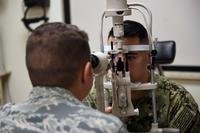Senator Webb recently introduced the “Military and Veterans Educational Reform Act of 2012” (S. 2179). According to Webb’s press release, if passed, the act will protect the integrity of the Post-9/11 GI Bill and military tuition assistance. Most who read the press release will note that the Senate seems to be targeting all private “for-profit” schools.
Webb’s bill would accomplish many of the same goals as the DoD’s Voluntary Education Partnership MOU. And, like the MOU, the objective is to ensure that both student veterans and tax payers are protected from schools that use false advertising, false claims, and other shady admissions practices from preying on students.
Unfortunately, the language used in the press release and associated news articles paints private “for-profit” colleges and universities with a very broad brush; making it sound as if a large number of for-profit schools are out to rip off student veterans. Unlike the bill itself, the attacks do little to serve veterans or tax payers. It is important to remember that most for-profit schools are offering services many public schools are not willing or able to.
As many veterans know, for-profit schools are popular with servicemembers and student veterans because they offer the degree completion programs, non-traditional delivery methods and flexibility that are not normally offered by many state-operated “public” universities.
For example, some public schools don’t offer veterans credit for the CLEP and DSST exams unless they score in the upper percentiles. A large number of public schools require “state residency” for veterans to get their tuition covered fully by the GI Bill. A few public schools offer little-to-no credit for military experience (as recommended by the American Council on Education – ACE). And, at some public colleges and universities the competition for enrolling in required courses can make it difficult to make the graduation requirements.
The truth is, nearly all schools have students who have legitimate complaints or feel cheated by the graduation and/or admissions requirements. Many veterans feel trapped by having to retake course work or not being given the credits they earned from past studies and coursework. Many public, private, for-profit, and non-profit schools have been known to make transferring credits between schools difficult or impossible – even when the schools are “regionally accredited” and belong to the Servicemembers Opportunity Colleges consortium.
What’s in the Military and Veterans Educational Reform Act of 2012?
To ensure schools receiving GI Bill and military tuition assistance funds don’t exceed the 33 percent undergraduate dropout rate, which is required for federal education funding, Webb’s bill would require ALL schools to report graduation rates and loan default rates. This seems more than fair, until you realize that the military student is different from your typical civilian student. Unlike the general population, military students deal with Op-Tempo, Deployments, and frequent PCS transfers that make it take longer to graduate and often force disenrollment and frequent school changes. These factors alone are likely to make tracking graduation rates impossible. But, to make it worse, the current system for tracking graduation rates only captures first-time, full-time, students - not your typical military student.
The bill would also require schools that have more than 20 GI Bill or tuition assistance students to offer support services and one-on-one counseling. The VA and DoD would have to develop a centralized complaint process to report fraud or misrepresentation and state authorizing agencies would be required to conduct audits in addition to their current screening duties.
It should be noted that most schools (public and private) are currently doing a good job of serving veterans and many are looking for ways to improve their services and offerings.
Senator Webb’s proposed legislation could do much to ensure servicemembers and veterans who wish to go back to school are treated fairly and have the counseling they need to be successful.
BTW - Despite the rhetoric, Webb’s bill applies to ALL colleges and universities that wish to participate in the GI Bill or military tuition assistance, not just for-profits.



